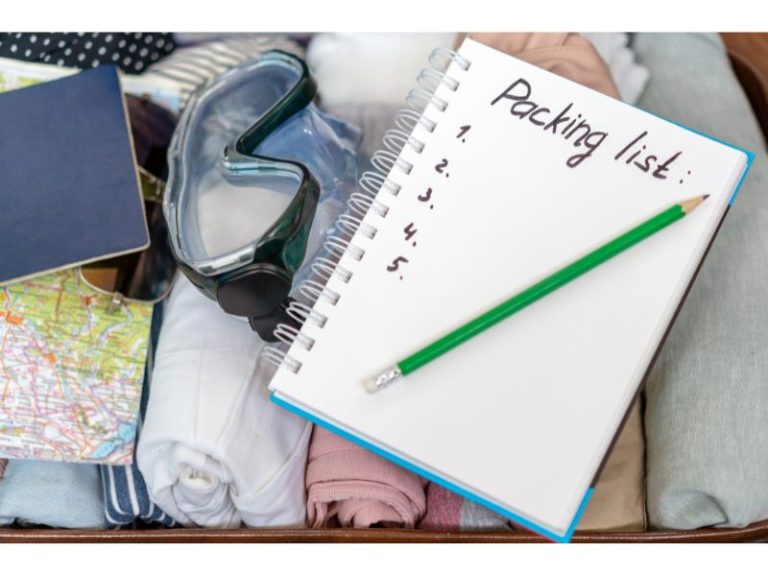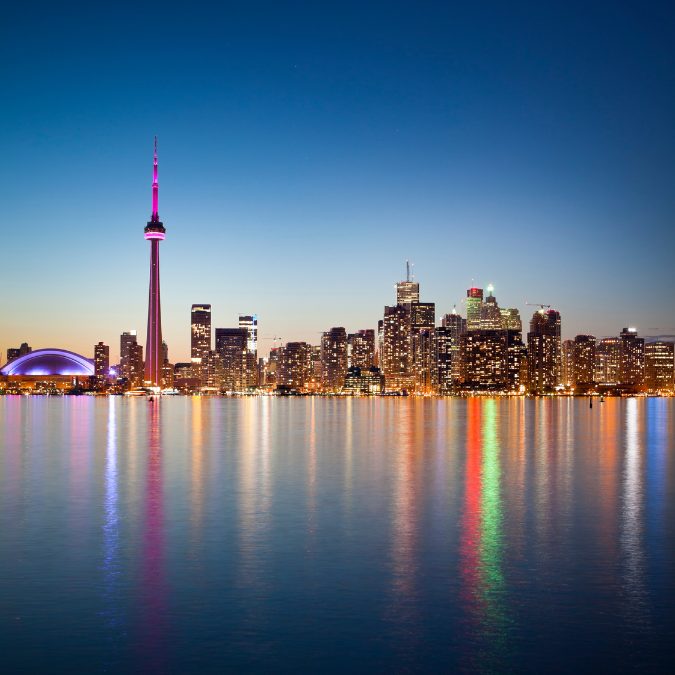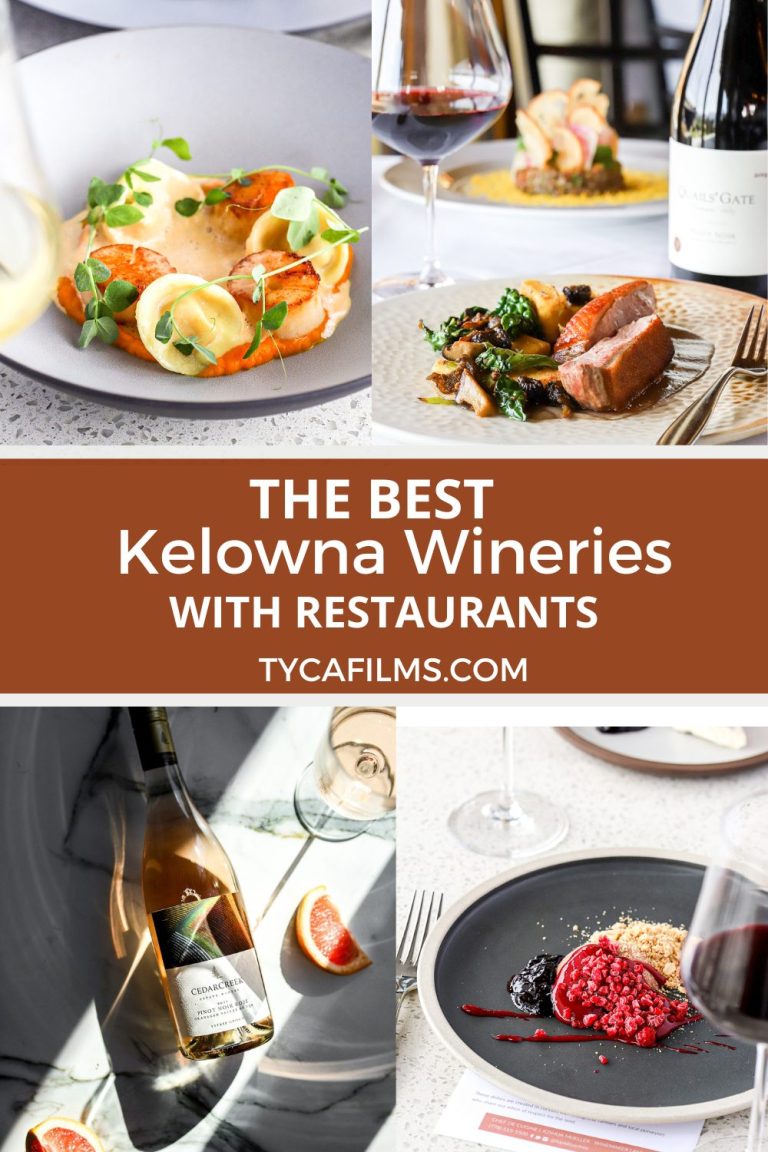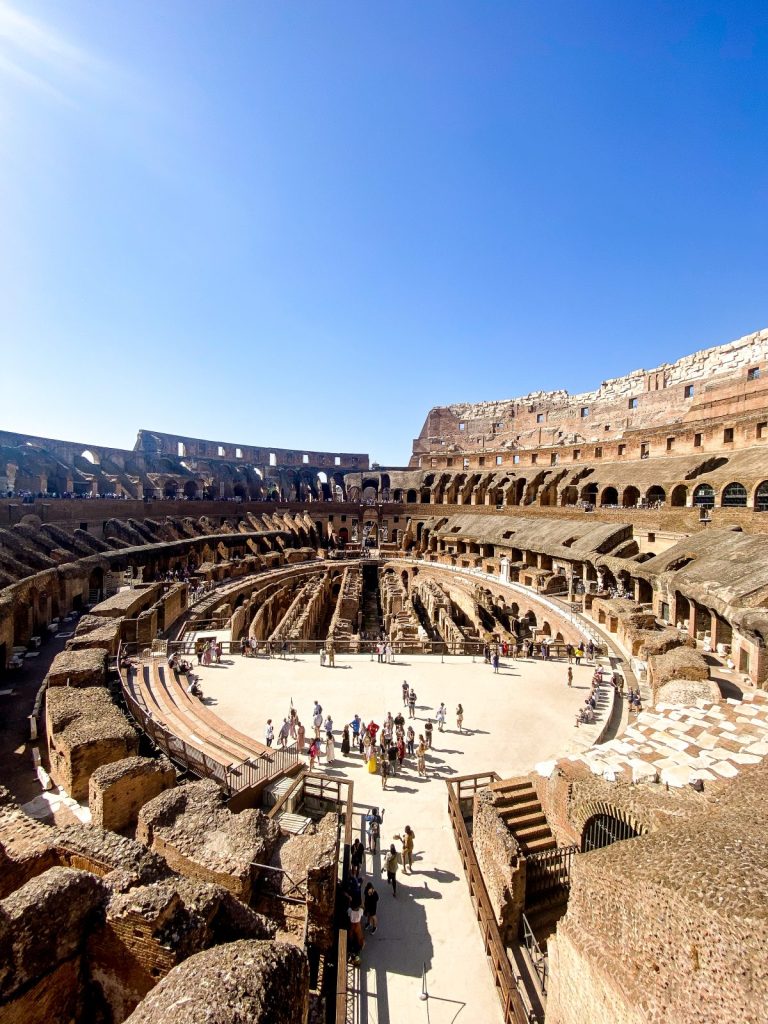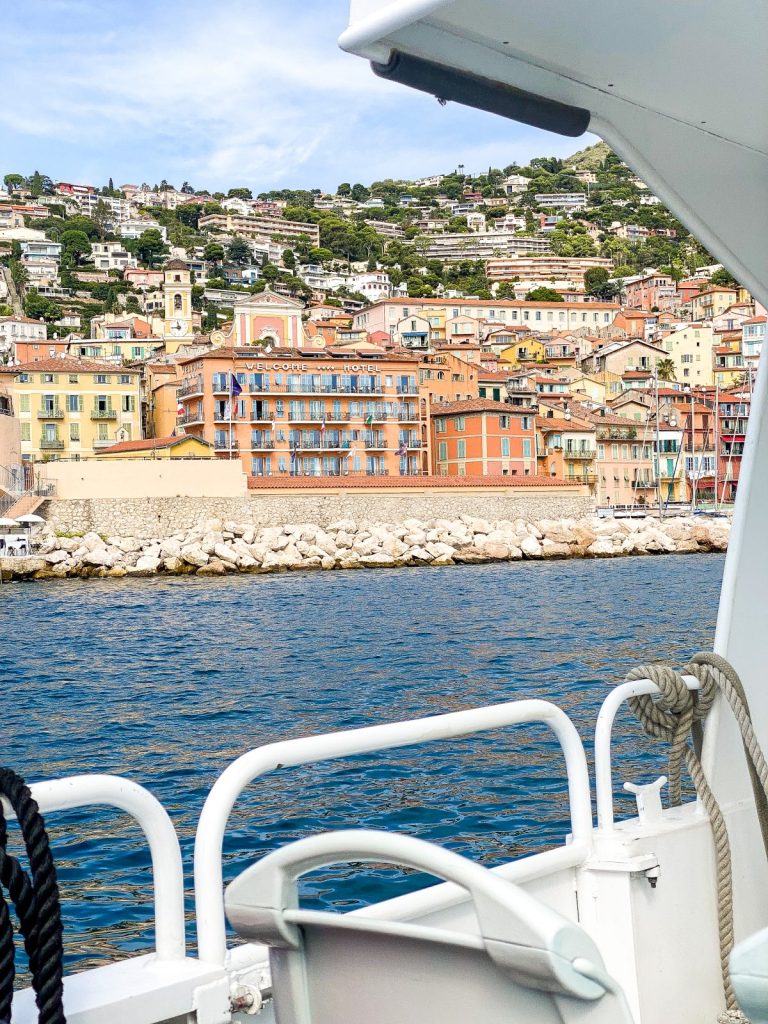Things To Know Before Moving To Kelowna, BC (Canada)
Considering a big move and looking up things to know before moving to Kelowna? Discover key insights about its climate, cost of living, job market, outdoor activities, and more. Prepare for your new adventure with these essential tips.
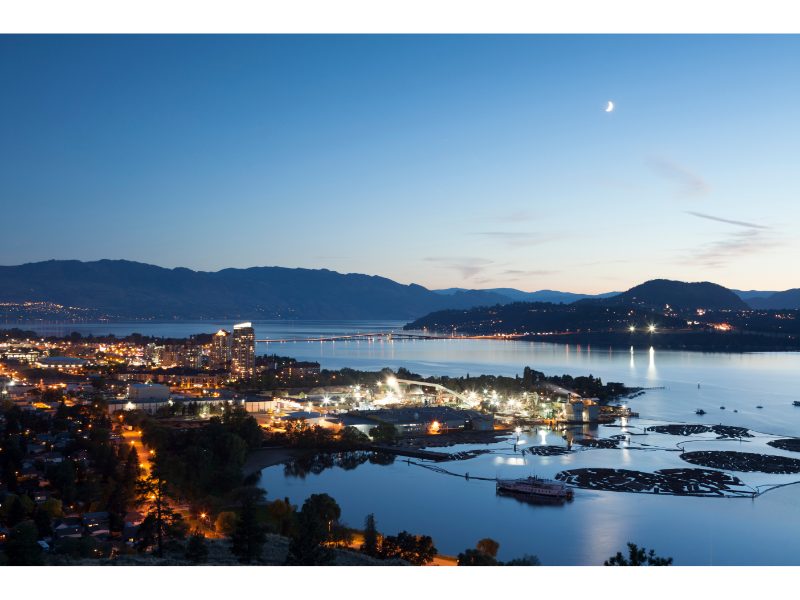
Moving to a new city is an exciting yet daunting endeavor, and if Kelowna, British Columbia, is your destination of choice, you’re in for a treat. Nestled in the heart of the stunning Okanagan Valley, Kelowna offers a unique blend of natural beauty, outdoor activities, and a vibrant community.
Moving to a new place requires careful consideration and research. To help you make a smooth transition, here are some key things to know before you head off to Kelowna, West Kelowna, or surrounding area.
CLIMATE IN THE CITY OF KELOWNA
Kelowna boasts a semi-arid climate, which translates to hot, dry summers and relatively mild winters. Summers can be scorching, with temperatures soaring above 30°C (86°F), while winters remain milder compared to other parts of Canada.
Prepare for very distinct seasons and embrace the sun-kissed days and cozy winter months. Here are a few weather related things to know before moving to kelowna.
Summers (June to August)
- Summers in Kelowna are hot and dry, making it a popular time for outdoor activities and tourism.
- Daytime average temperature ranges from 25°C to 35°C (77°F to 95°F), and occasionally even higher. Prepared to get more hours of sunshine than not.
- The region receives very little rainfall during the summer months, contributing to the dry conditions.
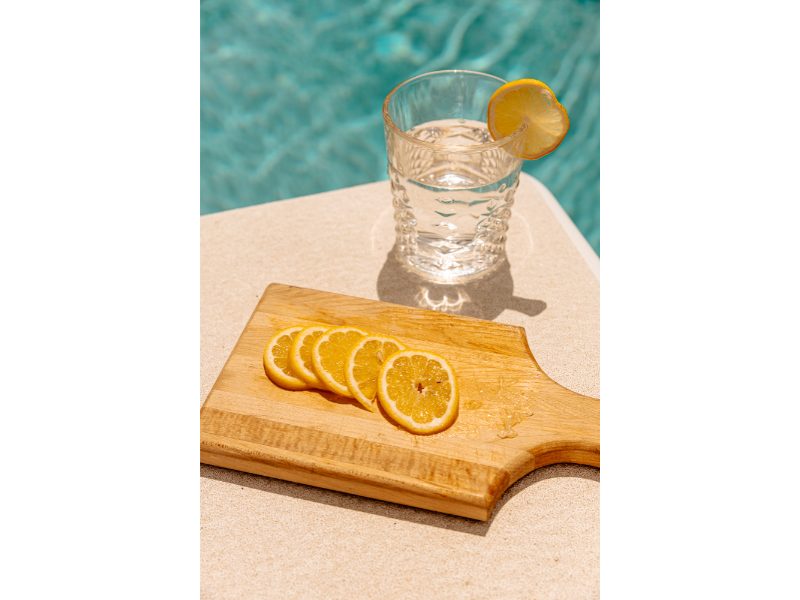
Autumn (September to November)
- Autumn is a transitional season with cooler temperatures and changing foliage.
- Temperatures gradually start to decrease, ranging from 10°C to 20°C (50°F to 68°F).
- Fall is generally a more mild climate than spring and brings beautiful colors as leaves change before winter.
Winters (December to February):
- Winters in Kelowna are relatively mild compared to many other Canadian cities, but they can still be considered cold winters.
- Average daytime temperatures range from around -5°C to 5°C (23°F to 41°F).
- While snowfall does occur, it is usually moderate and often melts away between snowfalls due to the milder temperatures.
Spring (March to May)
- Spring marks the return of warmer temperatures and the melting of any remaining snow.
- Daytime temperatures begin to rise, ranging from 10°C to 15°C (50°F to 59°F).
- Spring can be a bit wetter than fall, as the region experiences an increase in rainfall.
It’s important to note that Kelowna’s climate is influenced by its location in the Okanagan Valley. The valley’s unique geography, surrounded by mountains, contributes to the semi-arid conditions.
The rain shadow effect, caused by the mountains blocking moist air from the west, results in relatively low precipitation levels and a higher number of sunny days.
Due to the climate, outdoor activities such as hiking, biking, water sports, and golf are popular during the warmer months. Additionally, Kelowna’s vineyards and orchards benefit from the sunny climate, contributing to the region’s reputation as a wine-producing area.
BUDGET FOR THE COST OF LIVING
The picturesque landscapes come with a price tag. The cost of living in Kelowna can be higher than in some other Canadian cities, primarily due to the booming real estate market.
Research housing options and consider your budget carefully to find a balance between quality of life and expenses. Below are a few budget related things to know before moving to kelowna.
Housing
The cost of housing in Kelowna is one of the significant contributors to the overall cost of living. Housing prices have been on the rise, driven by demand and the city’s popularity.
Renting an apartment or house can be quite expensive, especially in desirable neighborhoods or closer to the downtown core. It’s not uncommon for a one-bedroom apartment to cost around $1,200 to $1,800 per month or more, and prices can be significantly higher for single family homes or upscale locations.

Transportation
Transportation costs in Kelowna can vary depending on your commuting habits. If you own a car, you’ll need to budget for fuel, insurance, maintenance, and parking.
Public transportation options, while available, might not be as extensive as in larger cities. A monthly bus pass could cost around $60 to $80.
Groceries
The cost of groceries in Kelowna is generally comparable to other cities in Canada. However, prices can vary based on where you shop and your dietary preferences. On average, a single person might spend around $200 to $300 per month on groceries.
Entertainment and Dining
The cost of entertainment, dining out, and leisure activities can vary widely based on your preferences. Kelowna offers a range of options, from affordable local eateries to higher-end restaurants.
Expect to spend around $15 to $20 for a meal at a mid-range restaurant. The downtown area and city park always has live music, making it an ideal place to spend time during Kelownas’ hot summers.
JOB MARKET FOR PERMANENT RESIDENTS
Kelowna’s economy is diverse, with industries ranging from agriculture and tourism to technology and healthcare. Research the job market and opportunities in your field before moving to ensure you have viable employment options.
- Tourism and Hospitality: Kelowna’s beautiful landscapes, wineries, and outdoor recreational opportunities make tourism a vital industry. This sector provides jobs in hotels, restaurants, entertainment, and related services, especially during the peak summer months.
- Technology: Kelowna has been experiencing growth in its technology sector, with companies in software development, video game production, and other tech-related fields. The establishment of technology hubs and co-working spaces has contributed to this sector’s expansion.
- Agriculture: The Okanagan Valley, where Kelowna is situated, is known for its agricultural production, including fruits, wine grapes, and more. Jobs are available in farming, vineyards, orchards, and food processing.
- Health care: Like many places, the healthcare sector is significant in Kelowna. Jobs can be found in at Kelowna General Hospital, clinics, medical offices, and other healthcare facilities.
- Education: With a growing population, there’s a demand for educators in high schools, at Okanagan college, and other educational institutions.
- Retail: Retail is a steady source of employment, catering to both local residents and tourists.
- Construction and Real Estate: The city’s growth has led to demand in construction and real estate sectors, offering jobs in building, architecture, and property management.
OUTDOOR ACTIVITIES
If Kelowna is known for something, it’s the abundance of outdoor activities it offers. The city is located by Okanagan Lake, offering water sports and recreational activities.
There are also numerous hiking trails, biking routes, and ski resorts nearby. Here are some popular outdoor adventures and activities you can experience and a few things to know before moving to kelowna.
Hiking
Kelowna boasts numerous hiking trails suitable for an active lifestyle and all skill levels. Knox Mountain Park, Myra-Bellevue Provincial Park, and Kalamoir Regional Park are just a few options.
These trails offer scenic views of the city, lakes, and mountains. Kelowna BC is a great place to live for all nature lovers.
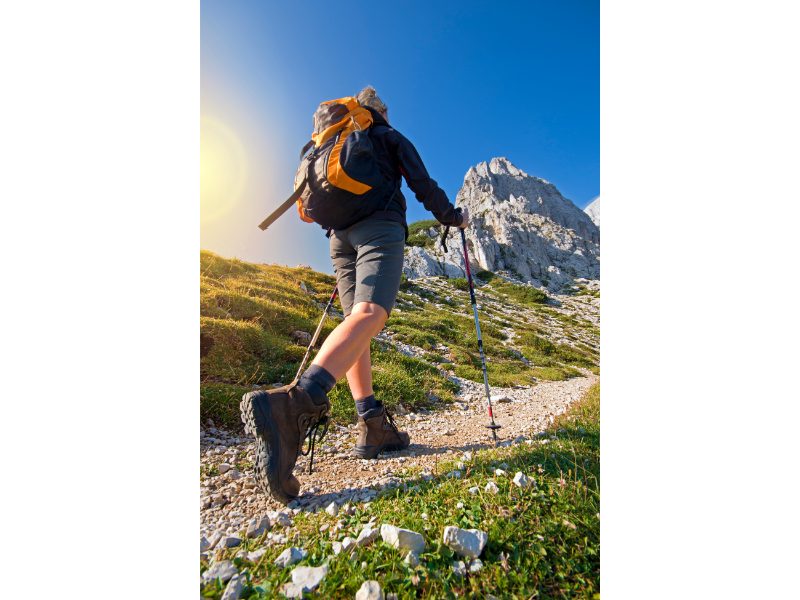
Biking
Whether you’re into mountain biking or leisurely cycling, Kelowna has options for you. The Kettle Valley Rail Trail and the Okanagan Rail Trail are scenic routes offering a mix of nature and history.
Water Sports
Okanagan Lake is a focal point for water activities. Enjoy swimming, kayaking, paddleboarding, and boating during the warmer months. Many beaches and parks provide access to the lake.
Golfing
Kelowna is a golfer’s paradise with a variety of golf courses catering to different skill levels. Many courses offer picturesque views of the surrounding landscapes including Gallagher’s canyon, Tower Ranch, Predator Ridge and Black Mountain Golf Course.
Skiing and Snowboarding
In the winter, nearby ski resorts such as Big White Ski Resort and SilverStar Mountain Resort provide excellent opportunities for skiing and snowboarding. These resorts also offer winter activities like snowshoeing and tubing.
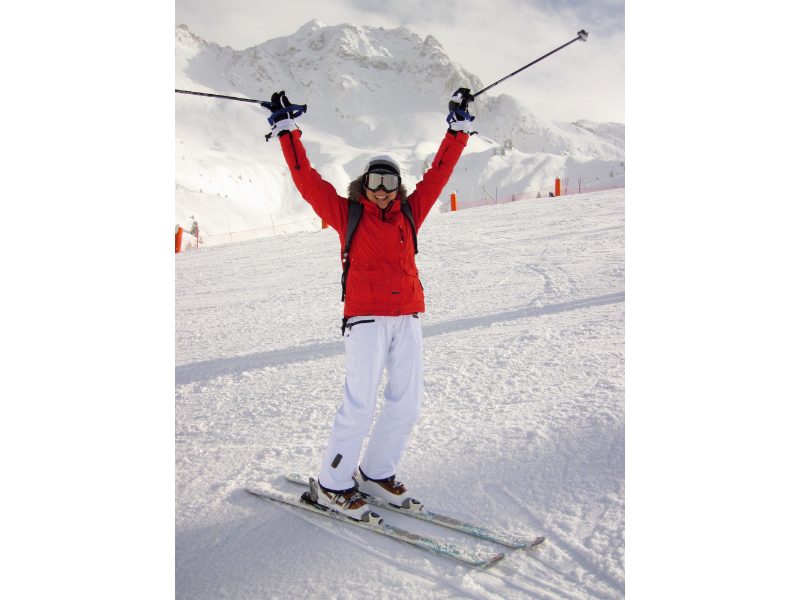
Rock Climbing
For rock climbing enthusiasts, the Skaha Bluffs Provincial Park near Penticton (about an hour’s drive from Kelowna) offers a fantastic climbing experience with stunning vistas.
Wildlife Viewing
The region is home to diverse wildlife. Birdwatching, particularly at locations like the Vaseux Lake Bird Observatory, is a popular pastime. You might also spot deer, bears, and other animals in the wild.
Fishing
Okanagan Lake and nearby lakes are known for fishing. You can find rainbow trout, kokanee salmon, and more. Make sure you have the necessary licenses and follow regulations.
Camping
There are various campgrounds in and around Kelowna for those looking to connect with nature. Provincial and regional parks often offer camping facilities.
Wine Tours
While not a traditional outdoor activity, exploring Kelowna’s wine region on a bike or by foot is a unique experience. You can tour local wineries, enjoy tastings, and take in the scenic vineyard landscapes.

Paragliding and Hang Gliding
Adventure seekers can enjoy paragliding and hang gliding over the picturesque landscapes of the Okanagan Valley.
TOURISM AND SEASONAL VARIATION
Kelowna is a popular destination, especially during the summer months. The tourism industry can impact the availability and pricing of accommodations and activities during peak seasons.
Accomodations
During peak seasons, such as summer and winter holidays, accommodations in Kelowna can fill up quickly. It’s recommended to book your lodging well in advance to secure your preferred choice and avoid disappointment. Here’s what you can expect:
- Hotels and Resorts: Many hotels and resorts experience high occupancy rates during peak seasons. Prices for rooms might be higher than usual, especially for well-located and upscale properties.
- Vacation Rentals: Vacation rental options like Airbnb and VRBO offer a range of choices, from apartments to entire houses. Prices may also increase during peak times, so booking early can help you find better deals.
- Camping: Campgrounds around Kelowna can also get busy during peak seasons. If you’re considering camping, be sure to reserve your spot in advance.
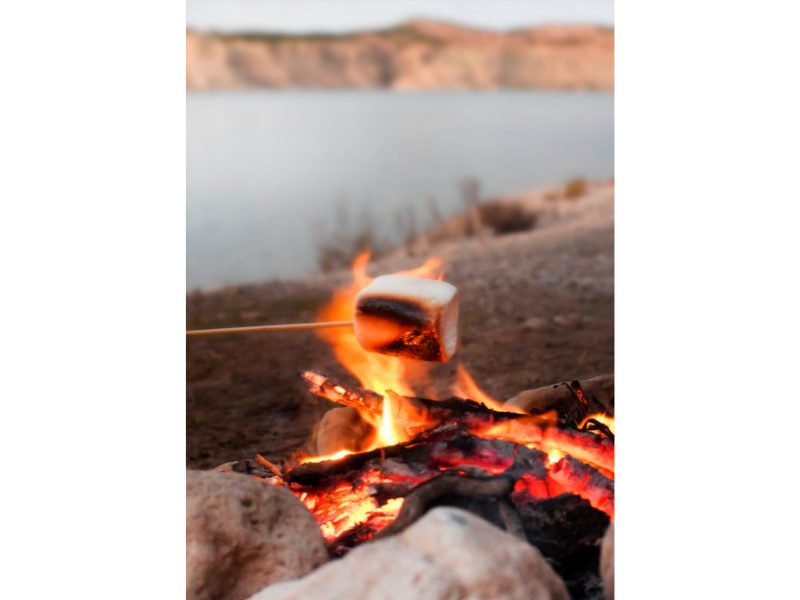
Activities
Kelowna’s abundance of outdoor activities and cultural events means there’s always something to do. However, popular activities and attractions can experience higher demand during peak seasons. Here’s how to plan:
- Outdoor Activities: Activities like water sports, hiking tours, and guided outdoor adventures might have limited availability due to high demand. Booking these experiences in advance ensures you secure your spot.
- Wine Tours: As Kelowna is renowned for its wineries and wine scene, wine tours can be highly sought after. Make reservations for wine tastings and vineyard tours ahead of time to ensure you don’t miss out on this quintessential experience.
- Festivals and Events: Kelowna hosts a variety of festivals and events, many of which occur during peak seasons. Check event schedules and purchase tickets early to guarantee entry. There are always Kelowna Rockets hockey games during the winter months as well.
TRAFFIC AND TRANSPORTATION
While Kelowna is a relatively small city, traffic congestion can be an issue during rush hours or peak tourist seasons. Public transportation options are available, but they might not be as extensive as in larger cities. Here are some traffic related things to know before moving to kelowna.
Vehicle Transportation
- Driving: Kelowna is a car-friendly city, and having your own vehicle can be convenient for exploring both the city and its surroundings. Be prepared for potential traffic congestion, especially during peak commuting hours and tourist seasons. Remember to follow local traffic rules and regulations.
- Parking: Most areas in Kelowna have available parking, including street parking and parking lots. However, in popular areas like downtown Kelowna and waterfront attractions, parking spaces might fill up quickly, especially during busy times. Consider using public transportation or alternative transportation modes in such cases.
Public Transportation
- Buses: Kelowna Regional Transit System operates a network of buses that connect different parts of the city. Buses are a cost-effective way to get around, and the service covers various routes. Check the transit schedules and routes in advance to plan your journey.
- Fares and Passes: Transit fares vary based on factors such as age and travel distance. Consider purchasing day passes or monthly passes if you plan to use public transportation frequently.
- Biking: Kelowna is becoming more bike-friendly, with dedicated bike lanes and routes. Biking is a great way to explore the city at a leisurely pace. Many areas have bike rental shops where you can easily rent bicycles for the day.
Ride-Sharing and Taxis
- Ride-Sharing: Ride-sharing services like Uber and Lyft operate in Kelowna, offering a convenient alternative to traditional taxis.
- Taxis: Taxis are available throughout the city and can be hailed on the street or booked in advance. They are a reliable option for getting around, especially if you prefer door-to-door service.

COMMUNITY AND SOCIAL LIFE
Kelowna has a strong sense of community, and there are often events and festivals happening throughout the year. Engaging with local clubs, organizations, and community groups can be a great way to meet other Kelowna residents and make new friends.
RESIDENCY AND LEGAL REQUIREMENTS
If you’re moving from outside of Canada, make sure you understand the legal requirements for obtaining residency, work permits, and other necessary documents.
Canadian Citizen and Permanent Resident
If you’re a Canadian citizen or a permanent resident of Canada, you have the right to live, work, and study in Kelowna without any additional immigration requirements. However, there are still some important steps to take:
- Address Change: Update your address with relevant government agencies, including the province of British Columbia and the city of Kelowna.
- Driver’s License and Vehicle Registration: Update your driver’s license and vehicle registration to reflect your new address in Kelowna.
- Healthcare: Register for the Medical Services Plan (MSP) of British Columbia to access healthcare services in the province. One of the important things to know before moving to kelowna.
International Student
If you’re an international student planning to study in Kelowna, you’ll need to follow these steps:
- Study Permit: Apply for a study permit through the Government of Canada’s Immigration, Refugees, and Citizenship Canada (IRCC) website before arriving in Kelowna. This permit allows you to study in Canada.
- Temporary Resident Visa (TRV): Depending on your nationality, you might need a TRV to enter Canada. Check the IRCC website to see if your country requires a TRV.
- Health Insurance: International students are often required to have health insurance. Check if your educational institution offers health insurance coverage or if you need to arrange it independently.
Skilled Workers and Professionals
If you’re a skilled worker or a professional planning to work in Kelowna, consider the following:
- Work Permit: You might need a work permit to legally work in Canada. Some jobs might be exempt from requiring a work permit. Check the IRCC website to determine if you need a permit and how to apply.
- Express Entry: If you’re interested in becoming a permanent resident of Canada, explore the Express Entry system, which manages applications for permanent residence under economic immigration programs.
EDUCATION
If you have children, research the available educational institutions, including schools and daycare centers, to ensure they meet your family’s needs. This is another one of the things to know before moving to kelowna.
Primary and Secondary Education
- Public Schools: The Central Okanagan Public School district serves the Kelowna area with plenty of options for public elementary and secondary schools. These schools offer a comprehensive curriculum and various extracurricular activities.
- Private Schools: Kelowna is home to several private schools that provide alternative educational approaches, smaller class sizes, and specialized programs.
- French Immersion: Many public schools in Kelowna offer French immersion programs for students interested in learning in both English and French.
- International Baccalaureate (IB): Some schools offer the IB program, which emphasizes rigorous academics and holistic development.
Post-Secondary Education
- Okanagan College: This public institution offers a range of diploma, certificate, and degree programs. It’s known for its practical and industry-focused education.
- University of British Columbia – Okanagan (UBCO): UBCO is a well-regarded research university offering undergraduate and graduate programs across various disciplines.
- Private Career Colleges: Kelowna is home to several private colleges that provide vocational and specialized training programs in fields like healthcare, business, and technology.

Continuing Education and Lifelong Learning
- Adult Education: Many institutions offer adult education courses, workshops, and classes for individuals seeking to upgrade their skills or pursue personal interests.
- Community Learning Centers: Kelowna has community centers that offer a variety of classes, seminars, and workshops for individuals of all ages, from cooking and arts to fitness and wellness.
SO IS KELOWNA FOR YOU?
Whether Okanagan Valley Of British Columbia is the right place for you depends on your personal preferences, lifestyle, and priorities. Kelowna is a beautiful city with vibrant culture and has some of the best weather in Canada.
To help you determine if Kelowna is a suitable fit, consider all these things to know before moving to kelowna.
Other Local Attractions You May Want To Check Out!
- The 17 Best Kelowna Wineries In The Okanagan Valley
- Best Golf Courses In Kelowna
- Top 6 Hikes In Kelowna
- Best Beaches In Kelowna
There are a few things to know before moving to kelowna. If you enjoyed this article please leave it a comment and review.

